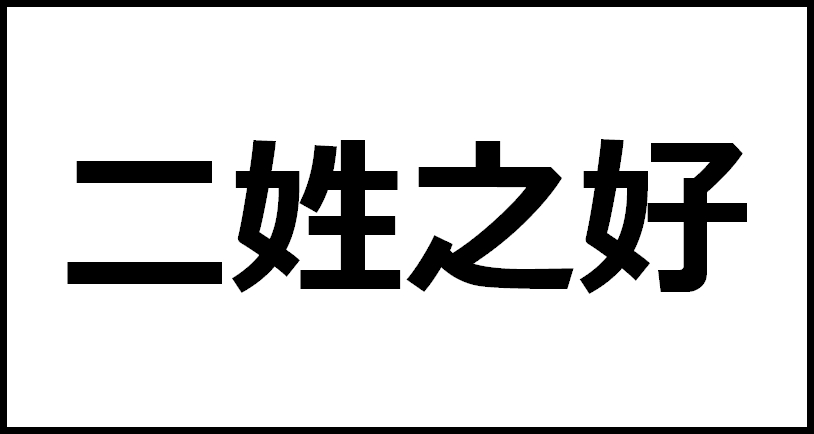二姓之好について。四字熟語の二姓之好の読み方や意味、英語や外国語での意味をまとめました。
二姓之好について
二姓之好の読み方・意味
| 四字熟語 | 二姓之好 |
| 読み方 | にせいのよしみ |
| カタカナ読み | ニセイノヨシミ |
| ローマ字読み | niseinoyoshimi |
| 読みの文字数 | 7文字読みの四字熟語 |
| 頭文字 | 「に」から始まる四字熟語 |
| 構成する文字 | ・之 ・二 ・好 ・姓 |
| 意味 | 結婚すること。または、結婚・婚約した夫の家と妻の家との親しい交際のこと。昔の中国では同じ姓をもつ者同士は結婚できないという風習があったことから。 |
二姓之好の意味(外国語)
二姓之好の外国語での意味をまとめました。
| 英語 | to get married. Or, a close relationship between the married/engaged husband’s house and the wife’s house. In ancient China, there was a custom that two people with the same surname could not marry each other. |
| スペイン語 | para casarse. O, una estrecha relación entre la casa del esposo casado/comprometido y la casa de la esposa. En la antigua China, existía la costumbre de que dos personas con el mismo apellido no podían casarse entre sí. |
| イタリア語 | sposarsi. Oppure, una stretta relazione tra la casa del marito sposato/fidanzato e la casa della moglie. Nell’antica Cina, c’era l’usanza che due persone con lo stesso cognome non potessero sposarsi. |
| ポルトガル語 | para se casar. Ou, uma relação próxima entre a casa do marido casado/noivo e a casa da esposa. Na China antiga, havia o costume de duas pessoas com o mesmo sobrenome não poderem se casar. |
| フランス語 | se marier. Ou, une relation étroite entre la maison du mari marié/fiancé et la maison de la femme. Dans la Chine ancienne, il y avait une coutume selon laquelle deux personnes portant le même nom de famille ne pouvaient pas se marier. |
| 中国語 | 结婚。 或者,已婚/订婚丈夫的房子与妻子的房子之间的密切关系。 在中国古代,有两个同姓的人不能结婚的习俗。 |
| 韓国語 | 결혼하는 것. 또는 결혼·약혼한 남편의 집과 아내의 집과의 친한 교제. 옛 중국에서는 같은 성을 가진 사람끼리는 결혼할 수 없다는 풍습이 있었기 때문에. |


